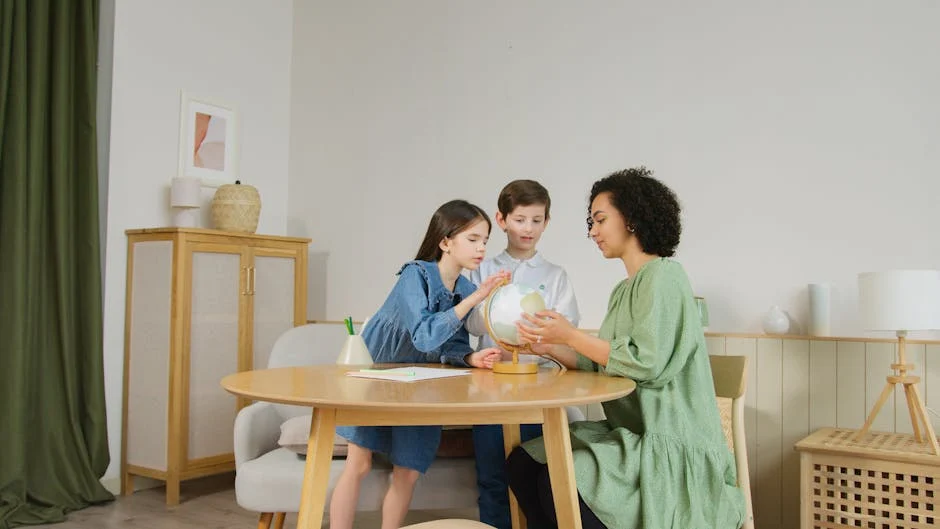Introduction
Is your child struggling with energy crashes, mood swings, or difficulty focusing in school? The food they eat could be a major contributing factor. The Paleo diet, which focuses on whole, unprocessed foods, offers a potential solution for stabilizing energy levels and improving focus in children. This article explores how Paleo meals can benefit your child’s cognitive function and overall well-being.
The Paleo Diet and Its Benefits for Children
What is the Paleo Diet?
The Paleo diet, also known as the “caveman diet,” emphasizes foods that our hunter-gatherer ancestors likely consumed. This includes:
- Lean meats (grass-fed when possible)
- Fish and seafood
- Fruits and vegetables
- Nuts and seeds
- Healthy fats (e.g., avocado, olive oil)
It excludes processed foods, grains, legumes, dairy, and refined sugars, which are relatively new additions to the human diet.
How Paleo Meals Stabilize Energy
The typical modern diet, high in processed carbohydrates and sugars, often leads to rapid spikes and drops in blood sugar. This creates energy crashes, leaving children feeling tired, irritable, and unable to concentrate. Paleo meals, on the other hand, promote stable blood sugar levels due to:
- **Lower carbohydrate content:** Reduces the likelihood of sugar spikes.
- **Higher protein and healthy fat content:** Provides sustained energy release.
- **Absence of refined sugars:** Eliminates artificial sweeteners and high-fructose corn syrup that contribute to energy fluctuations.
Paleo and Improved Focus
Beyond stabilizing energy, the Paleo diet can enhance focus and cognitive function in children by:
- **Reducing inflammation:** Processed foods and sugars can contribute to inflammation in the body, including the brain. A Paleo diet, rich in antioxidants and anti-inflammatory foods, helps reduce inflammation and improve brain health.
- **Providing essential nutrients:** Paleo meals are packed with essential vitamins, minerals, and omega-3 fatty acids that are crucial for brain development and function. These nutrients support memory, learning, and concentration.
- **Promoting gut health:** The gut-brain axis plays a significant role in cognitive function. The Paleo diet, by excluding processed foods and promoting a diverse range of fruits and vegetables, fosters a healthy gut microbiome, which can positively impact focus and mood.
Implementing Paleo Meals for Kids
Transitioning Gradually
It’s best to introduce Paleo meals gradually, rather than making drastic changes overnight. This allows your child to adjust to the new food choices and minimizes the risk of resistance.
Making it Kid-Friendly
Adapt Paleo recipes to suit your child’s taste preferences. Use creative presentations and involve them in the cooking process. Examples include:
- “Noodle-free” zucchini lasagna
- Chicken nuggets made with almond flour
- Fruit skewers with nut butter dip
Sample Paleo Meal Ideas for Children
Here are some examples of Paleo-friendly meals and snacks that are both nutritious and appealing to children:
- **Breakfast:** Scrambled eggs with vegetables and avocado slices.
- **Lunch:** Leftover grilled chicken with sweet potato fries and a side of berries.
- **Dinner:** Baked salmon with roasted broccoli and a small portion of mashed cauliflower.
- **Snacks:** Apple slices with almond butter, a handful of nuts and seeds, or a hard-boiled egg.
Addressing Potential Concerns
Consult with your pediatrician or a registered dietitian before making significant dietary changes, especially if your child has any underlying health conditions. Ensure that your child is getting all the necessary nutrients, including calcium and vitamin D, which are often found in dairy products. Consider supplementing if needed, under the guidance of a healthcare professional.
Conclusion
By focusing on whole, unprocessed foods, Paleo meals can offer significant benefits for children, including stabilized energy levels and improved focus. While transitioning to a Paleo-inspired diet requires careful planning and consideration, the potential rewards for your child’s cognitive function and overall well-being are well worth exploring. Remember to consult with a healthcare professional to ensure that the diet meets your child’s individual nutritional needs.
